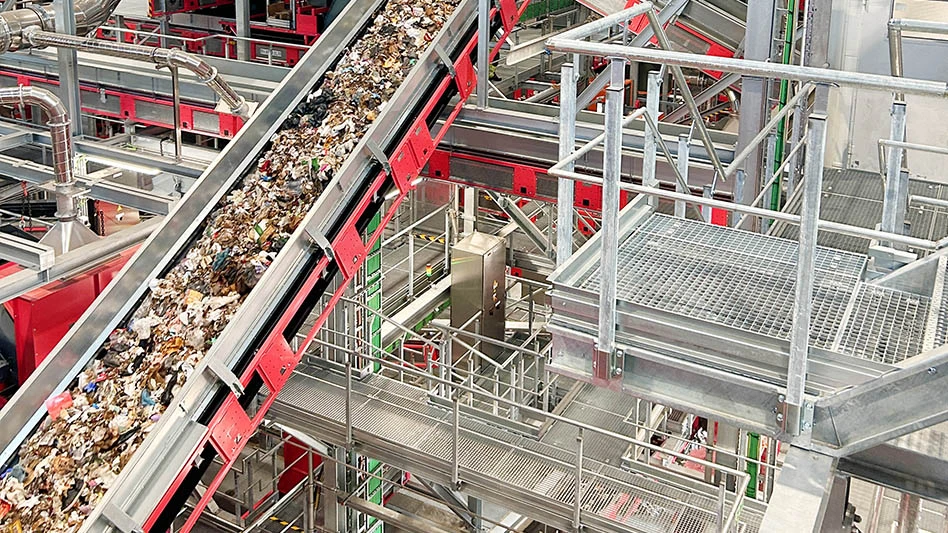
The global waste crisis and the urgency to adopt sustainable waste management practices have spurred significant efforts towards reusing, repurposing, and reclaiming waste and natural resources instead of resorting to traditional disposal methods like landfills or incineration. However, despite the passage of numerous laws and policies promoting sustainable waste management, persistent challenges continue to hinder the widespread adoption of these essential principles and goals.
Concepts like zero waste, a circular economy (which advocates for waste reduction, reuse, recycling, and recovery), and resource efficiency have emerged as cornerstones of sustainable waste management. They have motivated the need for governance reforms and paved the way for various laws and policies aimed at stimulating their adoption and addressing their presence.
For environmental sustainability, it is crucial to establish more advanced waste management practices than those in use today. One such practice is the traceability of waste intended for reuse, recycling, or recovery, which has become integral to cutting-edge projects in the sector, ensuring competitiveness and efficiency. Data tracking is not only essential for compliance with existing laws and policies but also for driving new regulations that discourage trash dumping or incineration. Furthermore, this waste traceability can help demonstrate compliance, thereby avoiding penalties when necessary.
However, achieving effective waste tracking and ownership monitoring demands a detailed understanding of processes, monitoring capabilities, and expertise in data analytics. In the realm of waste recycling, this translates into harnessing technologies like sensors, artificial intelligence, blockchain, and deep learning. In the era of big data, these technologies prove invaluable in rapidly and accurately analyzing data, facilitating the transition to a circular economy.
Yet, tracking waste and monitoring its owners to obtain this data is no easy task. Challenges may arise due to product decomposition into smaller components and existing rules such as extended producer responsibility, which holds manufacturers accountable for subsequent waste from their products.
The advent of blockchain technology has opened new possibilities in waste management, primarily centered around payment or reward facilitation and waste monitoring and tracking. Notable applications include initiatives like The Plastic Bank, which leverages blockchain-protected digital tokens to incentivize plastic garbage collection in underdeveloped nations. Similarly, Ecoembes promotes the SmartWaste project in La Rioja, which collects data throughout the garbage collection and selection process using sensors in vehicles, GPS systems, and cutting-edge technology in sorting factories. Additionally, BanQu, based in Utah, employs blockchain technology to ensure supply chain transparency, granting businesses visibility into their environmental impact and promoting circular supply chains.
Blockchain operates by storing data in connected blocks, and any change in one block triggers a cryptographic hash computation, compared to the hash recorded in the next block. Any difference indicates a change in the first block, necessitating updates to all subsequent blocks. Distributed consensus techniques like proof of work, stake, or space ensure that altering historical blocks becomes computationally or financially infeasible.
The efficiency and cost reduction potential of blockchain technology can streamline waste management operations by automating tasks like waste collection scheduling and payment processing. This, in turn, allows for more resources to be allocated to improving waste management infrastructure and services.
Despite the enormous potential of blockchain in waste management, several challenges need to be addressed. Legislative frameworks supporting blockchain implementation and the energy consumption associated with blockchain operations are among the primary concerns. However, continuous technology improvements and a growing understanding of blockchain's potential offer hope for overcoming these challenges.
The application of blockchain in waste management extends beyond traditional waste to address rising environmental concerns regarding e-waste. Abandoned electronic equipment contains harmful compounds, making e-waste a pressing issue. Blockchain technology can trace the lifecycle of electrical products, ensuring their proper disposal and promoting the circular economy, wherein waste is reused or recycled, reducing the demand for new resources.
Get curated news on YOUR industry.
Enter your email to receive our newsletters.
Latest from Waste Today
- US Senate backs reduced cuts to EPA
- ELV Select Equipment, Reworld aid NYPD in secure firearm disposal
- Waste Connections announces Q2 results
- Returnity and Cosmoprof to address reusable bag waste
- SWANA releases report on aging WTE facilities
- New economic assessment reveals cost benefits of California’s SB 54
- Premier Truck Sales & Rental opens new facility
- TeknTrash Robotics, Sharp Group partner on humanoid robot pilot






